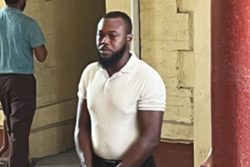Dear Editor,
After I was discharged from the Suddie Public Hospital a week ago, I was given an appointment by the surgeons for a medical check-up at 9 am on Monday 22. I arrived about 7 am at the gate, and the porters were prompt, handling me very carefully. These porters are working under severe constraints and I sometimes wonder how they manage to carry patients on a stretcher up steep steps without falling down. This is risky for both the patients and the porters; sometimes we tend to focus more on the professionals than the ordinary workers at the hospital the last-mentioned of whom are very important but are not given their due recognition.
After my terrible experience two weeks ago in Suddie hospital, I wrote a letter which was published in the Guyana Chronicle about the institution’s shortcomings and the lack of proper administration as well as the shortage of drugs. On my visit this week I saw a great change in the attitude of the nurses; they were more courteous and prompt in administering the various tests. Suddie is the major hospital in Region Two which caters for patients from as far as Moruka and other outlying areas. We now have a minister who seems to care about the institutions and the shortage of drugs and the deplorable conditions. We have travelled a long way from colonialism, from the harsh, unlovely days, but we still have a long way to attain our goal. The hospital and the Ministry of Public Health should regularly conduct educational programmes for creating awareness about the proper care of patients.
Suddie hospital should be fully equipped with modern state-of-the-art equipment and ultramodern facilities for laparoscopic surgeries. The hospital should have a team of skilled doctors and surgeons.
I saw patients who had been given appointments sitting at 6 am waiting to see the doctor; some of them came from as far as Moruka. These people had to travel the day before to be at Suddie.
Almost 50 patients including myself sat there waiting and no one had the respect to tell us that the doctors were in the wards checking on patients. A number of nurses passed us sitting in long lines without uttering a word to inform us that the clinic doctors would be late. The appointment time had long passed and no doctor had showed up, when at 10.30 am they arrived. All this time I could see the frustration and bitterness in these patients’ faces; some began to quarrel, and some left for home because they couldn’t wait any more.
I was called into the clinic room about 11 am, but the room was so small I couldn’t get on the bed to be examined. The doctor wanted to examine me sitting in the wheelchair but I insisted on being put onto the bed.
The Cuban surgeon insisted that the makeshift wall be removed so I could be placed onto the bed, which was done.
No country today can transform itself into a modern state without the development of a technological capability.
Yours faithfully,
Mohamed Khan








